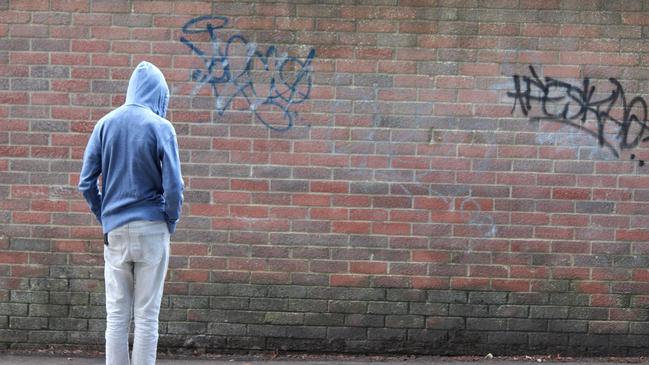Experts call for preventative programs to curb youth ‘crimes for clicks’ craze
Teens craving notoriety are committing violent attacks and dangerous stunts to gain social media followers – and experts warn curbing the “toxic” trend could be an impossible task.
News
Don't miss out on the headlines from News. Followed categories will be added to My News.
A dangerous “crimes for clicks” craze is leading to a spike in violent attacks and risky pranks by teenagers – and without urgent intervention, stamping out the trend could prove an impossible task, experts fear.
The warning comes amid a spike in youths filming silly stunts and brutal bashings and posting it to social media in an attempt to get “likes”.
A year 11 student is currently at the centre of a police investigation, and at risk of expulsion from elite private school, Melbourne Grammar, after dousing GoBoat passengers on the Yarra River with milk over the weekend.


The viral social media stunt follows a recent string of violent youth attacks.
Harrowing footage emerged of teens violently attacking a woman with Down syndrome at Southern Cross Station last week, posted online by her attackers.
In another shocking incident last week, a 15-year-old girl was bashed by two 12-year-old girls while she stood outside of the local post office in Mildura, with the footage posted on social media.
Video surfaced earlier in January of a group of young boys laughing as a man, understood to be 79, was pushed off a Mornington Peninsula pier.


Senior Lecturer in Youth Work and Youth Studies at RMIT University, Dr Kathryn Daley, said young people are often “not yet cognitively able” to grasp the impacts of their actions.
“Young people, often young men, jump off a roof into a pool without contemplating it may break their neck and paralyse them for life,” she said.
“It’s that same developmental period in their brain where their actions are not undertaken with a consideration of the consequences.
“There’s developmental markers that suggest that young men hit these milestones later than young women.”
Dr Daley said there’s also environmental factors that see some young men more drawn to risk taking.
“It escalates when people are in a group. You’ve got an audience and people are cheering you on. And then you might take risks that you wouldn’t normally,” she said.
“Being excited by the high, the peer pressure, they may have been drinking … and social media just escalates it. You get lots of likes, you do more of it.”

Dr Daley said kids need to be taught the importance of a digital footprint and that anything they post online is permanent.
“(It makes you think) why on earth would you film this? On the internet? You’ve just recorded a crime,” she said.
“You have to teach students to be aware of what you’re posting online, your future employers are going to Google your name.”
Senior Lecturer in Pedagogy and Education Futures at La Trobe University Dr Alexia Maddox said there is a strong difference between “childish pranks” in an attempt to gain notoriety and “spiteful or hateful attacks”.
“(The former) is linked to a certain level of immaturity. They get that little spike of adrenaline and pleasure by seeing people engage with their content,” she said.
“Then we have these really disturbed individuals that intend to hurt a particular individual and turn it into a public visible display of that. They are about violence and abuse and violation and then amplifying that.
“Unfortunately there are toxic cultures online that reinforce and validate these sorts of attacks.”

Dr Maddox said it is important to report posts on social media and reduce the visibility of concerning content.
“Being able to control the whole ecosystem is almost an impossible task,” she said.
“But we don’t want (problematic content) to catch on as a name. And for other kids to think that gaining notoriety through acts like this is going to increase their engagement, and increase their reputation and people knowing about them.”
A spokesperson from mental health charity The Man Cave said preventative programs are “extremely important”.
“They are crucial because they mean we get to boys before negative attitudes, behaviours and belief systems, which lead to dangerous behaviour, gendered violence, male suicide and mental ill health, have taken hold,” they said.
“It’s not the first time that teenagers have engaged in negative, dangerous activity, and if we don’t seek to invest in positive, preventative programs and healthy rites of passage for our young people, it certainly won’t be the last.”





